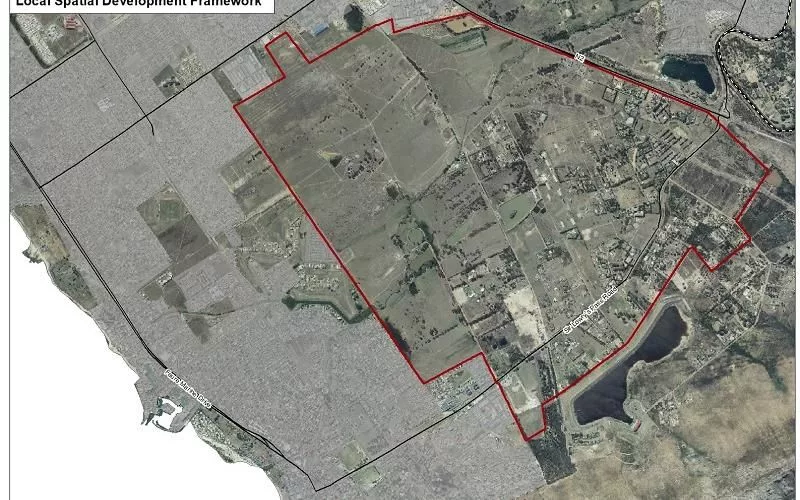District Six’s Chapel Street is undergoing a significant renovation, designed to create a pedestrian-friendly environment and foster community spirit. The Urban Planning and Design Division in Cape Town has collaborated with the District Six populace, investors, and those with vested interests to create a detailed design draft that will be presented to the public on 24th February 2024. Feedback opportunities are available online until 7th March 2024, and the project embodies the spirit of community-driven urban development and heritage preservation.
Discover the renewal of District Six’s Chapel Street with a pedestrian-friendly atmosphere, tree planting, and community spirit. The Urban Planning and Design Division in Cape Town has collaborated with the District Six populace, investors, and those with vested interests to augment Chapel Street’s connection with the Central Business District (CBD). The upcoming open day on 24th February 2024 will display the revisions and provide an exhilarating peek into Chapel Street’s future. Opportunities for feedback are available online until 7th March 2024.
The Dawn of A New Chapter
In the central hub of Cape Town, an intriguing transition is poised to unfold. The historic Chapel Street in District Six is expected to undergo a significant enhancement. This renovation is not merely a tangible adjustment in construction and style; it signifies a transformation deeply rooted in historical significance and communal spirit. The Urban Planning and Design Division in Cape Town has slated 24th February 2024 to reveal a meticulously crafted design draft to the public.
This aspiring endeavor, rooted in the District Six Public Sphere Strategy of 2022, is the fruit of painstaking collaborations with the District Six populace, investors, and those with vested interests. It serves as a proof of the influential role of community interaction in molding urban landscapes. The central goal of the initiative is to augment Chapel Street’s connection with Trafalgar Park, New Hanover Street, and the Central Business District (CBD), thereby forging a comprehensive urban network.
The Journey so Far
In May 2023, municipal authorities arranged an open day for the public, inviting feedback on the preliminary design for the remodel of Chapel Street. The city administration, demonstrating openness and proactivity, has diligently incorporated the feedback received from this event into their advanced design concept. The upcoming open day will display these revisions, providing an exhilarating peek into Chapel Street’s future.
Alderman Eddie Andrews, the Deputy Mayor and Mayoral Committee Member for Spatial Planning and Environment, is at the helm of this venture. He fervently encourages the residents and the local community to capitalize on this opportunity to scrutinize the changes and provide further feedback. As expressed by Andrews, this project holds a basic yet potent objective: “To bring about enhancements that will profit the community of District Six and its visitors.”
Scheduled for 24th February 2024, from 11:00 to 15:00, the open day will be organized at the Memory-centric Lydia Centre, nestled at the junction of St Philips and Chapel Streets in District Six. This place, rich in memories and historical significance, provides the ideal backdrop for discussing the future evolution of this historic venue.
Community Engagement and Collaboration
For those who cannot participate in the open day, there are still opportunities to express their thoughts. The digital platform www.capetown.gov.za/haveyoursay allows for online submissions, while email entries can be directed to Public.Participation@capetown.gov.za, using ‘Chapel Street Upgrade’ as the subject of the email. The timeframe for public feedback concludes on 7th March 2024.
The blueprint’s primary focus is to cultivate a pedestrian-friendly atmosphere along Chapel Street. The creative scheme includes traffic soothing measures, constriction of the road and expansion of sidewalks, intending to foster a safer environment for pedestrians. The design also integrates plans for tree planting, encouraging residents and visitors to interact with nature and each other, thereby nurturing community spirit and bonding.
The Bigger Picture
The renovation of Chapel Street is not merely a city development project. It is a tribute to the resilience and spirit of the District Six community. It investigates how urban design can invigorate historical sites, ensuring their narratives are not erased but are passed on to future generations, imprinted into the very sidewalks and roads.
The presentation of the detailed design draft on 24th February 2024 is set to be a significant event, signifying a crucial juncture in the annals of District Six. It represents a solid pledge from the city to community-driven urban development and attests to the efficacy of cooperation in shaping neighborhoods. Therefore, the transformation of Chapel Street serves as a remarkable case of urban rejuvenation that is fundamentally rooted in history, community involvement, and prudent urban planning.
1. What is District Six’s Chapel Street undergoing?
District Six’s Chapel Street is undergoing a significant renovation designed to create a pedestrian-friendly environment, foster community spirit, and augment its connection with the Central Business District (CBD).
2. When will the design draft for the renovation be presented to the public?
The design draft will be presented to the public on 24th February 2024.
3. How can the public provide feedback on the renovation project?
The public can provide feedback on the renovation project through the digital platform www.capetown.gov.za/haveyoursay or by emailing Public.Participation@capetown.gov.za, using ‘Chapel Street Upgrade’ as the subject of the email. The timeframe for public feedback concludes on 7th March 2024.
4. What is the primary focus of the renovation project?
The primary focus of the renovation project is to cultivate a pedestrian-friendly atmosphere along Chapel Street, including traffic soothing measures, constriction of the road and expansion of sidewalks, and tree planting to foster community spirit.
5. What is the significance of the renovation project for District Six?
The renovation of Chapel Street is a tribute to the resilience and spirit of the District Six community, investigating how urban design can invigorate historical sites and pass on their narratives to future generations.
6. When and where is the open day for the renovation project being held?
The open day for the renovation project is scheduled for 24th February 2024, from 11:00 to 15:00, at the Lydia Centre in District Six.












